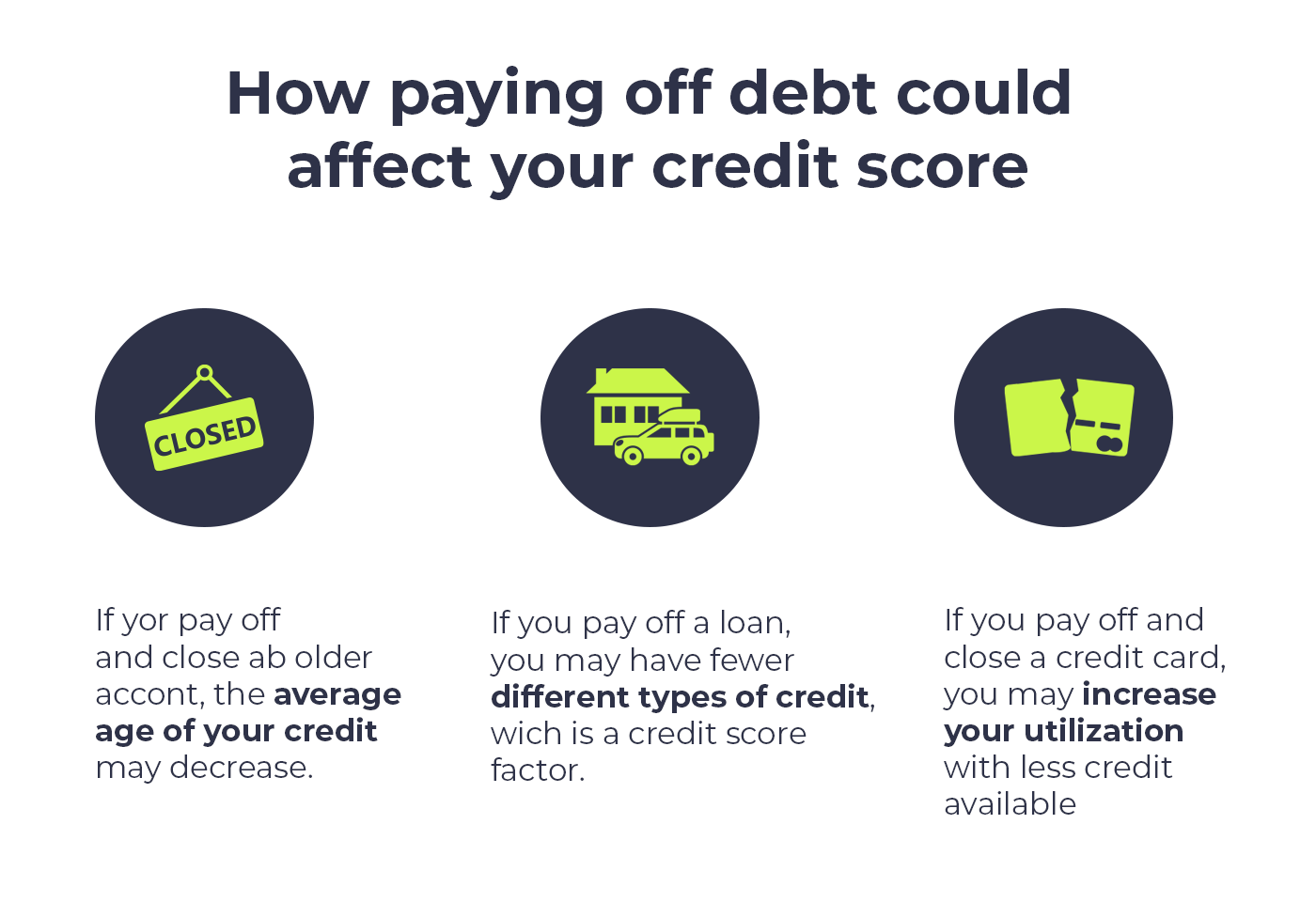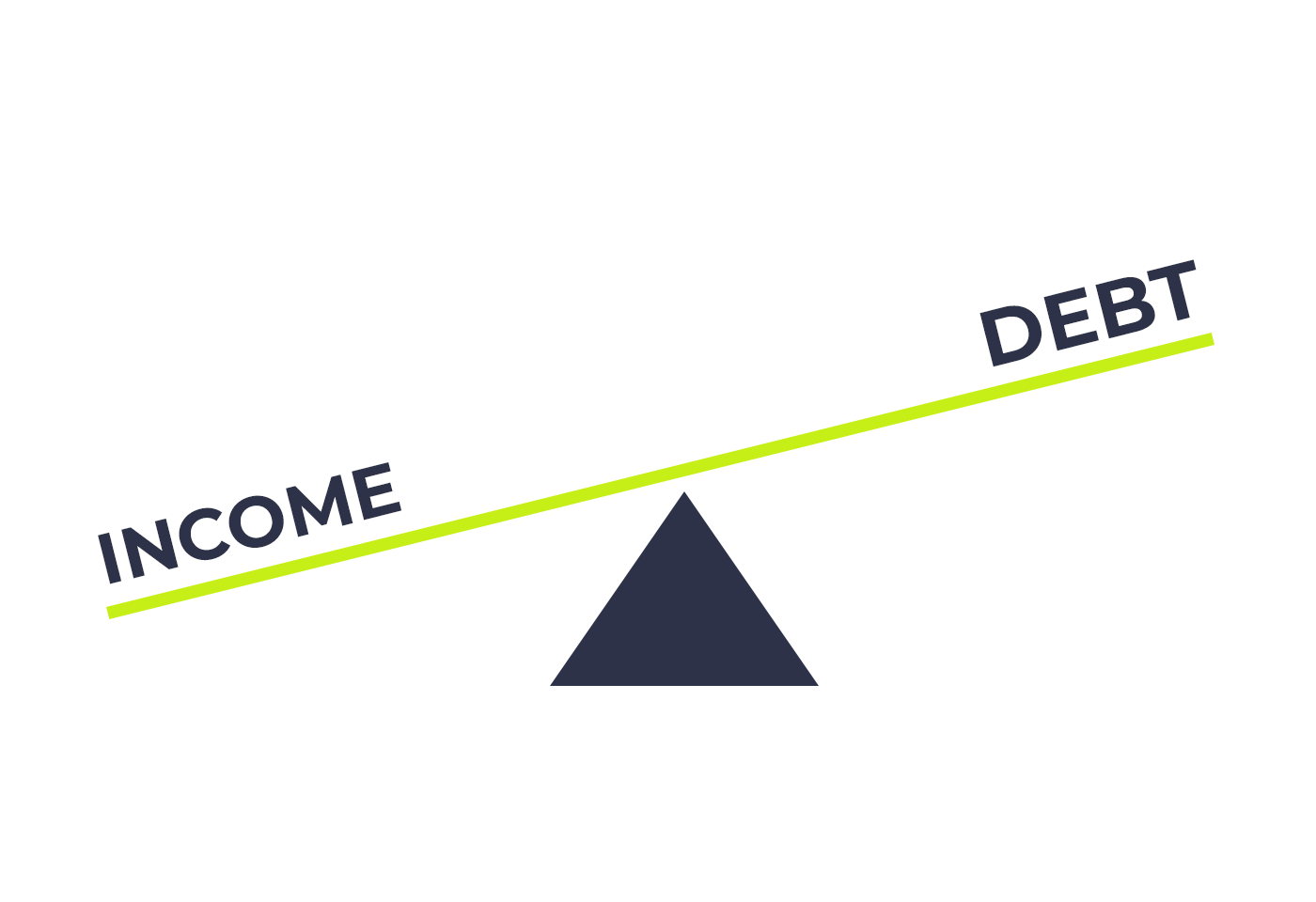.png)
You have some additional cash and would like to pay off debt sooner rather than later. This may save you money on interest and give you a few additional bucks left to live. So, is it a good idea to pay off your personal loan early?
Paying off debt is typically beneficial to your money and credit. But think about the repercussions before you pay off your personal loan. Early repayment fees are occasionally imposed on personal loans. Although repaying debt early won't hurt your credit score, it may bring you back if you are trying to establish credit.
How does Paying Off Debt Early Affect Your FICO Score?

Settling a personal loan differs from paying off revolving credit tools. If you keep track of your credit and make a substantial payment, your FICO score may have jumped a few points after the payment was made. It's because you lowered your credit usage utilization ratio on your existing card. The lower your credit usage, the higher your FICO rating is likely to be.
Unlike credit cards, when you pay off a personal loan, the account is marked as closed on a credit file. FICO gives open accounts a higher weighting than closed ones when determining the borrower's credit rating. Active bank accounts reflect how you've handled debt in the past and today. On-time payments still affect your credit file, but they cannot affect your score as much.
When you take out an installment loan, you consequently raise the number of active accounts on your credit report, thus enhancing your credit. Conversely, you will reverse the effect when you close the account, thus showing a shorter account history if the debt is paid off early. However, the same isn't true when it comes to paying off your revolving debt. Even if you pay the whole bill, the account will remain on your report since you are able to borrow again.
Things to Consider Before You Pay Off Your Loan
Is paying off a personal loan early ever a smart idea? It's possible. Only you can decide whether saving money on interest, decreasing your monthly debt burden, or even accepting a short, modest blow to your credit score is worth it in the long run. Here are five key factors to consider if you're thinking of taking an early payment:
Do You Require a Good FICO Score?
Indeed, settling personal debt early won't have a significant or long-term impact on your credit score. However, there are instances when you need every point of your credit score to assist you in receiving a good rate. Such as when looking for a mortgage loan. In this case, you may wish to wait until your home loan is authorized before paying off personal debt in full.
Work on Reducing the Debt-To-Income Ratio

However, if your lender considers your debt-to-income ratio (DTI) to qualify for a loan, you may need to decide on repayment debt early. Although a DTI ratio has no major effect on a FICO score, lenders consider it when assessing your credit request. The smaller your DTI, the more likely you are to get approved.
Would Paying Off Credit Card Debt be a Wiser Use of Extra Funds?
The interest rates on credit cards are often greater than those on installments. Paying off credit card debt will almost probably boost your credit score rather than harm it. Some customers prefer to shift personal debts to a credit card in this situation. If you're considering whether to pay off your personal loan or credit cards, think twice.
Can Paying Off Debt Early Put you at Risk?
You might save on interest by paying off a loan with your savings. However, it may impair your capacity to deal with a financial crisis if one occurs. If you have more than three to six months' worth of spending in an emergency fund, this is less of a problem. However, if you don't have much in savings, be sure you're not jeopardizing your finances, thus your ability to keep your good credit by paying off your loan in full.
Advantages of Paying off Debt Early
Perhaps you've calculated that paying off your debt early may save you hundreds of dollars. Maybe you're thinking about refinancing your house and want to combine your personal and mortgage loan payments. Whatever your motivation, be sure to understand the advantages of paying off your debt early. That is the only method to determine if paying off your debt is beneficial.
Is Taking Out a Personal Loan Advantageous to Your Credit?
Taking out a personal loan and paying it off on time might help you improve your credit score in various ways. A personal loan shows up on your credit record, which is a form of a loan with a fixed repayment schedule. Installment loans are not the same as credit cards, which have revolving debt. Including an installment loan in your credit mix might help you raise your FICO score by demonstrating your ability to manage various forms of debt.
On-time debt repayment contributes to your positive payment history, which is important. Your payment history makes up about 35% of your FICO credit score, making it the most important component in calculating your score.
Keep in mind that taking out a new personal loan will temporarily lower your credit score. The lender will normally do a hard credit pull on your file when you initiate a credit request. These can reduce your credit rating, but only for a short time. A new credit request on your file may also lower your average account age. This difficulty disappears as you settle debt over time and develop your credit. On the other hand, new accounts make your credit appear less mature at first.
The Bottom Line
Indeed, the decision to pay off debt early is based on your individual circumstances and personal preference. Whether you're worried about how it may affect your FICO score, you can get a free copy of your credit report at annualreport.com to observe your file.
